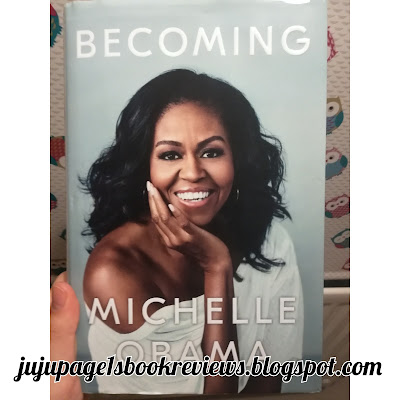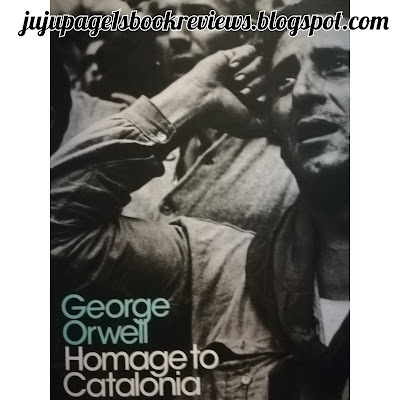English essay no.1: Analysis on how culture in Adichie's Purple Hibiscus, affects the character of Jaja in the novel
Hello everybody and welcome back to another blog post,
Just thought it would be nice to share the English essay I wrote recently about the novel of Purple Hibiscus; a book by Adichie that we read in English class. I will be posting a review on the novel next week since it was an amazing read but for now, I hope you enjoy reading this essay. There's a few things that I could improve on like making my thoughts a little bit more cohesive but I did enjoy writing this. Feel free to use this as inspiration or a nice read but please do not copy. This is my own work:)
How does Adichie present the importance of culture in building identity?
Adichie shows that culture is important for the development and formation of a child’s identity. She conveys this message by highlighting Jaja’s positive change in character when he is finally given the freedom to explore the ways in which different people from different communities live their lives.
Upon one of his first trips out with Aunty Ifeoma, Jaja is exposed to the religious Igbo tradition called the ima mmuo. Although this is a male-orientated and significant part of his native Igbo culture, Papa Eugene’s strict censorship had prevented Jaja from joining in the tradition. “The only Christians who let their sons do it were confused, that they would end up in hellfire.” The referral to everyone as “Christians” highlights how Papa Eugene refuses to acknowledge people from different cultural backgrounds; believing that the only culture with authority, came from that of Christianity. This could perhaps explain Jaja’s ignorance on the ima mmuo as, in terms of the culture that was promoted in his family, Jaja was only ever taught about the superiority of Roman Catholicism and was made to believe that other people from different cultures promoted a “heathen” lifestyle. The adjective “shame,” expresses Jaja’s first sense of regret at having not involved himself in the ima mmuo and this is his first step towards discovering who he is as an individual. Perhaps Adichie’s message here is that Jaja could have really discovered himself, had the acceptance of multi-culturalism had been more promoted in his early life. Instead, however, Jaja was left to fear difference because of the impact of Papa Eugene’s colonial beliefs so he never even fully understood his own Igbo background.
Adichie foreshadows a change in the character of Jaja later in the novel. This change in character can be seen when Obiora compares his cousin to “Jaja of Opobo,” the defiant king who opposed the strict control of the British. The adjective “defiant” that Obiora uses to describe Jaja, foreshadows Jaja’s later disobedience, as pre-empted in chapter 1 when he refuses to go to communion. “Jaja of Opobo” is used by Adichie as an extended metaphor for Jaja’s family circumstances as Jaja the Nigerian king’s defiance to colonial rule, can reflect upon ordinary Jaja’s future defiance to Papa Eugene’s strict Catholic and colonial beliefs. Aunty Ifeoma now understands Papa Eugene’s violent nature towards his children and she encourages Jaja, who is a more confident student than Kambili, to break free from his rules. Adichie is showing that Jaja is on the cusp of becoming more independent and understanding who he is.
Jaja’s open resistance is already portrayed when Jaja begins to tell the truth about his deformed finger and begins to be more open to Aunty Ifeoma. “How did Jaja do it? How could he speak so easily?” Kambili’s questioning of Jaja’s newfound ability to speak with honesty about Papa Eugene’s abuse, shows that he is no longer afraid to be bold because he is propelled by this new feeling of freedom. This is further enhanced by the simile that Kambili uses to describe Jaja’s physical change in body language - ‘He lifted his shoulders as he stood there, like someone proudly wearing clothes that were not his size.’ The phrase, “like someone proudly wearing clothes that were not his size” is illustrating Jaja as someone who’s confident in their identity, despite their differences. The ill-fitting clothes is also being used as a comparison to show the change in Jaja’s mentality because although he had not followed the guided path of his father, he’s established himself as an individual. Adichie’s message here could be that difference is not something to be feared, but a vital step in the process of a child’s discovery of themselves.
Jaja’s first act of defiance before he disobeyed Papa Eugene on Palm Sunday was when he and Kambili observed the painting of Papa Nnukwu that Amaka gave to them. Already, as Jaja lovingly gazes at the painting, stroking the surface with his deformed finger, Kambili can sense a period of transition occurring. When Kambili says “things were destined not to be the same, to not be in their original order,” she’s showing that things were inevitably going to change in their family. The adjective “destined” leads the readers back to the beginning of the novel when Adichie already introduces the inevitable event that will shape the lives of Jaja and Kambili.“Things started to fall apart at home when my brother, Jaja, did not go to communion.” From the very beginning, Adichie shows that there was a flaw in the structure of Jaja’s family all along and that change was the only thing to break Papa Eugene’s damaging restrictions. This unsurprisingly leads to Jaja observing Kambili’s painting of Papa Nnukwu, completely reluctant of the serious consequences that this action will bring. The feeling of freedom he had experienced in Nusukka, meant that Jaja’s identity had permanently changed, which made it impossible for him to return to normal.
Overall, Adichie is communicating that it is important for the wellbeing of children, to be exposed to many different cultures and attitudes. Through Jaja’s newfound and growing confidence, Adichie shows that children find their identities when they are given the freedom to find who they are and not when they are constantly guided into certain cultures. Adichie argues throughout the whole of the novel that Papa Eugene’s extreme traditions were toxic towards his children because it placed them into categories and took away their individual identities.
What books have you written essays on? Have you ever read Purple Hibiscus before? Let me know in the comments below and I'll be sure to reply to them. I ♡ hearing from you!
Tap one of the reaction boxes below to let me know what you thought of this post. It would really help me to make some improvements in the future!
Be sure to follow and subscribe so that you don't miss anymore of my brilliant posts and share this article with a friend who might enjoy it too!
See you next time,
Bye,
XOX, Juliette




Comments
Post a Comment